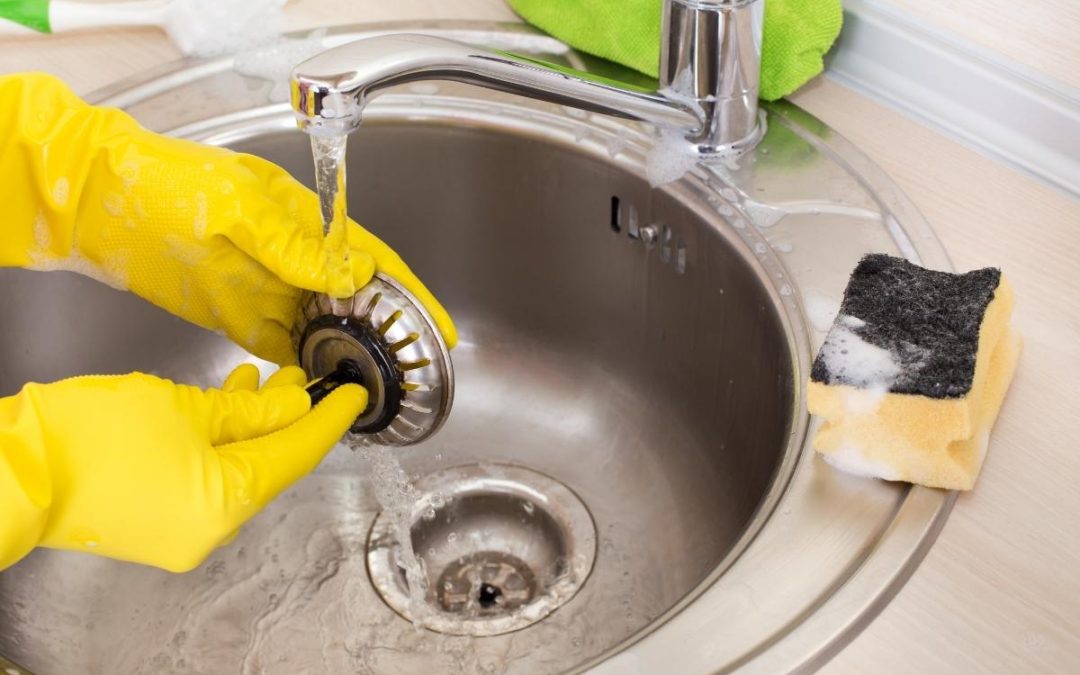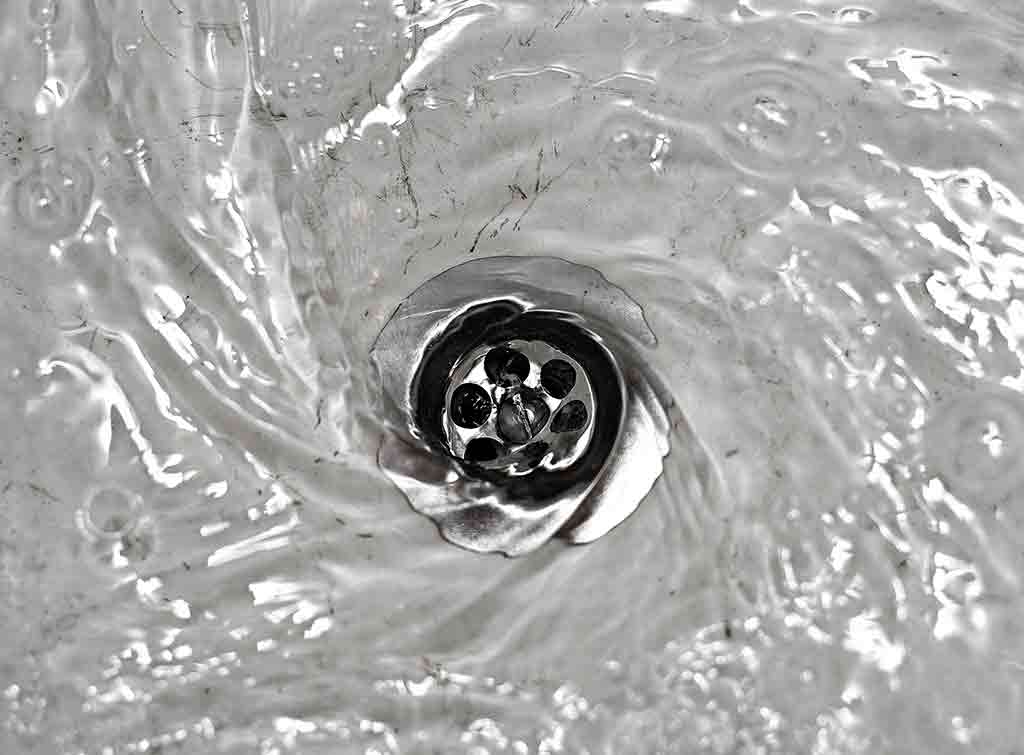Valuable Advice On How To Resolve A Slow-Draining Sink
Valuable Advice On How To Resolve A Slow-Draining Sink
Blog Article
The publisher is making several good points on 7 Ways To Fix A Slow-Draining Sink Before You Call A Plumber in general in this article in the next paragraphs.

Intro
We have actually all existed: You're brushing your teeth or cleaning your hands, and you see the water merging in the sink. Instead of promptly swirling down the tubes, it sticks around, turning your once-refreshing early morning regimen into a small swamp scene. A slow-draining sink isn't simply frustrating; it's frequently an indication of larger pipes issues lurking below the surface area. The bright side is that most slow-draining sinks can be repaired with a little knowledge, a couple of standard devices, and some patience. Ready to tackle this task head-on? Let's roll up our sleeves and dive right in.
Recognizing the Sources Of a Slow-Draining Sink
Before you begin poking around in your pipes, it assists to know what could be triggering the stagnation. Understanding the root cause makes it simpler to pick the best solution.
Devices and Products You'll Need
The right tools make all the distinction. Luckily, you won't need a completely stocked plumbing's van to do the job.
Step-by-Step Overview to Dealing With a Slow-Draining Sink
Currently, let's get into the nitty-gritty. This detailed procedure will assist you with basic strategies to restore your sink's water drainage.
Step 1: Remove and Clean the Stopper
Commonly, the stopper (that tiny plug you push down to obstruct water) is the initial offender. Remove it thoroughly and wipe any hair or substance trapped around its base. Wash it extensively prior to placing it back in place.
Step 2: Make Use Of a Bettor to Dislodge Debris
Got that bettor all set? Setting it over the drainpipe and give it a few firm pumps. The concept is to create suction that can loosen any obstruction. If you see bits of debris floating up, you get on the right track.
Step 3: Attempt a Drainpipe Serpent or Wire Wall Mount
If the bettor doesn't work, it's time to bring out the drain snake. Carefully feed it into the drain and twist as you go. You may feel some resistance-- that's likely the blockage. Keep turning and drawing till you remove the blockage. If you don't have a drain snake, a corrected cable wall mount can work in a pinch.
Tip 4: Apply a DIY Drainpipe Cleaner
A natural cleaner made from baking soft drink and vinegar can break down residual gunk. Pour half a cup of cooking soda right into the drainpipe, complied with by half a cup of vinegar. Let it fizz for about 15 minutes, then flush with hot water. This chemical reaction typically does wonders for minor obstructions.
Step 5: Reassemble and Examine the Sink
Placed whatever back together and run the tap. Does the water now swirl away at a decent speed? If yes, offer yourself a pat on the back. Otherwise, do not misery-- there are still a couple of even more dress up your sleeve.
Crucial Devices for DIY Repair Works
A bettor is your go-to beginning point. A little, sink-sized plunger produces suction that can dislodge small obstructions. For even more persistent clogs, a drainpipe snake (often called a plumbing technician's auger) functions marvels. A pair of gloves, a flashlight, and maybe a set of safety goggles are also handy.
Advised Cleansing Solutions
Mild dish soap and warm water can assist break down greasy accumulation. A combination of cooking soda and vinegar is a reliable natural home remedy, and enzymatic cleaners supply an even more environmentally friendly strategy. Maintain chemical drain cleaners as a last hope, as they can be rough on your pipelines.
Usual Wrongdoers Behind Slow Drain
So, what's obstructing things up? Typically, it's a combination of daily particles-- believe hair, soap scum, toothpaste residue, and leftover food particles. With time, these little bits accumulate and hold on to the pipeline wall surfaces, gradually tightening the passage and making it harder for water to go through. In some cases, mineral deposits from hard water can additionally include in the substance, producing the perfect storm for persistent blockages.
When is it Time to Act?
If you notice the water draining pipes slower than typical, it's an excellent concept to step in sooner as opposed to later. Waiting as well long can result in finish blockages, undesirable smells, or even pipe damages. If the water takes greater than a few seconds to clear out after shutting off the faucet, consider it a warning and get ready to put on your do it yourself hat.
Safety First: Safety Measures and Prep work
Before you launch into unclogging mode, think about security. You're handling possibly unclean water and particles, so slip on a pair of gloves. If you're using chemical cleaners, ensure the area is well-ventilated and comply with the instructions on the tag.
Protective Equipment and Work Area Arrangement
Lay down some old towels or dustcloths around the sink location to catch sprinkles. Eliminate any items that could get in your way, like soap dispensers or tooth brush owners. Make sure you have excellent lights-- get a flashlight if needed.
Alternative Techniques for Stubborn Clogs
Not all clogs are developed equivalent. If your sink still declines to cooperate, consider these different solutions.
Sodium Bicarbonate and Vinegar Technique
We currently touched on this, but it's worth noting once more. This gentle, environmentally friendly method is safer than chemical cleaners and commonly rather effective.
Chemical Drain Cleansers
Enzyme-based cleaners utilize all-natural bacteria to digest raw material. They're an outstanding selection if you're looking to prevent severe chemicals. Simply bear in mind, they may take a bit longer to work their magic.
Chemical Drainpipe Cleaning Company: Pros and Cons
Chemical cleaners can blast with difficult blockages fast, but they're not without drawbacks. They can generate heat and fumes, damage pipes if made use of exceedingly, and pose ecological dangers. Use them sparingly, and always adhere to the instructions meticulously.
Safety Nets to Maintain Your Sink Flowing
Avoidance is the very best treatment. By embracing a couple of easy behaviors, you can maintain your sink from slowing down in the first place.
Routine Cleansing Practices
Clean down the sink container and fixture location on a regular basis. Remove hair or food bits before they have a possibility to wash down the drainpipe.
Staying Clear Of Hazardous Compounds Down The Tubes
Reconsider prior to dumping coffee grounds, grease, or fibrous vegetable scraps down the sink. These perpetrators hold on to pipe wall surfaces, producing clogs with time.
Regular Maintenance Checks
Arrange a quick regular monthly examination. Run warm water via the sink for a few mins, paying attention to the flow. If it appears slow, act quick before it comes to be a full-on obstruction.
When to Call an Expert Plumber
Occasionally, despite exactly how tough you try, that block just will not budge. That's when it's time to bring in the pros.
Indicators That Indicate a More Major Issue
If your sink drains slowly regardless of several efforts, or if you see water supporting in various other components (like your shower or bathroom), you may have an extra serious pipes problem prowling much deeper in the system.
Balancing Do It Yourself Efforts with Specialist Assistance
While DIY can conserve you cash and offer a feeling of accomplishment, there's no pity in calling a professional. An expert plumber can examine your entire pipes setup, making certain there's no underlying damage or long-term problem that could cost you a lot more in the future.
Comparing Expenses and Long-Term Solutions
Prior to making a decision, take into consideration the big picture. A cheap, quick fix may solve the issue momentarily, yet investing in an extra permanent remedy might save you money and stress in the long run.
Weighing the Costs of Do It Yourself vs. Expert Fixes
DIY repairs often cost little bit more than the price of a bettor or a bottle of baking soft drink. Professional services, on the other hand, included a price tag however might avoid repetitive issues and costly fixings later.
Purchasing Top Quality Fixtures and Upgrades
If your sink's design contributes to regular clogs, it could be worth upgrading to higher-quality components or modifying the plumbing layout. Consider this an investment in your house's functionality and comfort.
Conclusion
A slow-draining sink can seem like a small inflammation, yet it's often an indicator that your plumbing requires a little TLC. By understanding the root causes, utilizing the right devices and methods, and committing to straightforward safety nets, you can maintain your sink moving openly. And when all else stops working, never ever hesitate to hire a professional-- your home's plumbing deserves the financial investment in care and maintenance.
Three Common Ways to Fix a Slow Drain
Baking Soda Method
Boil a full pot of water. Measure out cup of baking soda and pour it down the drain. Then take cup of the magical cleansing substance known as white vinegar and drop that down there too. Allow the mixture to fizz in the drain for five minutes as the vinegar and baking soda combine. Now dump in that whole pot of boiling water. This combination of cleaning substances should clear out anything that is causing your sink to drain slowly. If it doesn t...
Zip-It
If the baking soda method doesn t clear out your drain, it may be because a significant amount of hair and/or other debris has collected there and you need to remove it. Purchase a Zip-It tool at any home improvement or hardware store and insert it into your drain. It will catch any collected hair or debris that s blocking the flow of water. Pull it out. If it s got a big clump of hair, etc. on the end, you ve probably got your culprit.
Drain Cleaner
If these methods don t work, there is the standard drain cleaner that you can also buy in a hardware store or even your local grocery store. It s better if you can use a household solution, but these drain cleaners often work in a pinch. They re very simple to use. You generally just dump them in your drain and wait. If even this method is not effective, it may be time to call the plumber.
https://www.mrrooter.com/oneida/about-us/blog/2017/july/three-common-ways-to-fix-a-slow-drain/

I was made aware of that article about How to Fix a Slow Draining Sink from an acquaintance on our other blog. If you enjoyed our blog post kindly do not forget to share it. I value reading our article about Solved! How to Fix a Slow Sink Drain.
Schedule Services Report this page